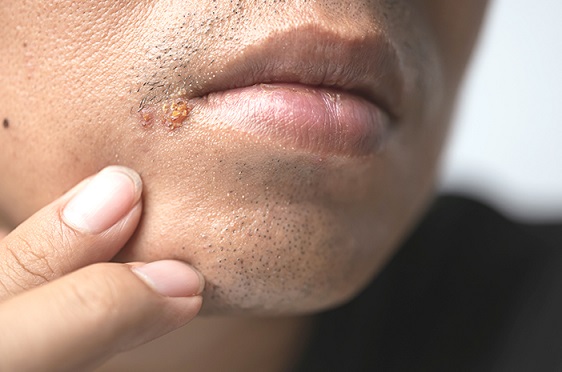Introduction
Herpes is a common viral infection caused by the herpes simplex virus (HSV). While antiviral medications are the primary treatment, many people also look for natural remedies and lifestyle adjustments to manage outbreaks and improve quality of life. These approaches can help reduce the frequency and severity of symptoms while supporting overall health.
The Role of Nutrition
A balanced diet plays a significant role in strengthening the immune system and managing herpes symptoms. Certain nutrients may help reduce outbreaks and promote healing.
- Lysine-rich foods: Lysine, an amino acid found in fish, chicken, and dairy products, may help reduce the frequency of herpes outbreaks.
- Antioxidant-rich foods: Fruits and vegetables high in vitamins C and E support immune health and skin healing.
- Hydration: Drinking plenty of water keeps the body hydrated, which can help speed up recovery during outbreaks.
Limiting foods high in arginine, such as nuts and chocolate, may also be helpful, as arginine can sometimes trigger outbreaks in sensitive individuals.
Stress Management and Mental Health
Stress is one of the most common triggers for herpes outbreaks. Incorporating stress-reducing practices into daily life can help lower the likelihood of flare-ups.
- Meditation and deep breathing: Calming techniques help regulate stress hormones.
- Yoga and gentle exercise: These activities promote relaxation while boosting immunity.
- Adequate sleep: Restorative sleep supports both physical healing and mental well-being.
By focusing on mental health, individuals can minimize one of the leading triggers of herpes symptoms.
Natural Topical Remedies
Several natural remedies may help soothe discomfort during herpes outbreaks. While they are not cures, they can provide relief from pain, itching, and inflammation.
- Aloe vera gel: Known for its soothing properties, aloe vera may reduce irritation and promote healing.
- Lemon balm extract: Applied topically, lemon balm may help reduce the duration of outbreaks.
- Tea tree oil (diluted): This essential oil has antiviral and antiseptic properties, but it should always be diluted before use to avoid skin irritation.
- Cold compresses: Applying a cool, damp cloth can ease pain and reduce swelling.
It is important to test any natural remedy on a small patch of skin first to ensure no adverse reaction occurs.
Building a Healthy Lifestyle
Adopting a healthy lifestyle supports the body’s ability to manage herpes symptoms effectively. Practical tips include:
- Avoiding smoking and excessive alcohol, which can weaken the immune system.
- Exercising regularly to boost circulation and overall health.
- Maintaining good hygiene, such as washing hands frequently and avoiding sharing personal items.
These small, consistent habits can make a big difference in long-term symptom management.
When to Seek Medical Advice
Natural remedies and lifestyle changes can complement medical treatments, but they are not substitutes for professional care. It is important to consult a healthcare provider if outbreaks become frequent, severe, or interfere with daily life. Combining natural approaches with prescribed antiviral medication often provides the best results.
Conclusion
Managing herpes symptoms naturally is possible with the right combination of nutrition, stress management, natural remedies, and healthy lifestyle choices. While these methods cannot cure herpes, they can help reduce discomfort and improve overall well-being. For reliable updates and practical health information, yeemanews.com offers valuable resources to support individuals in making informed decisions about their health.






